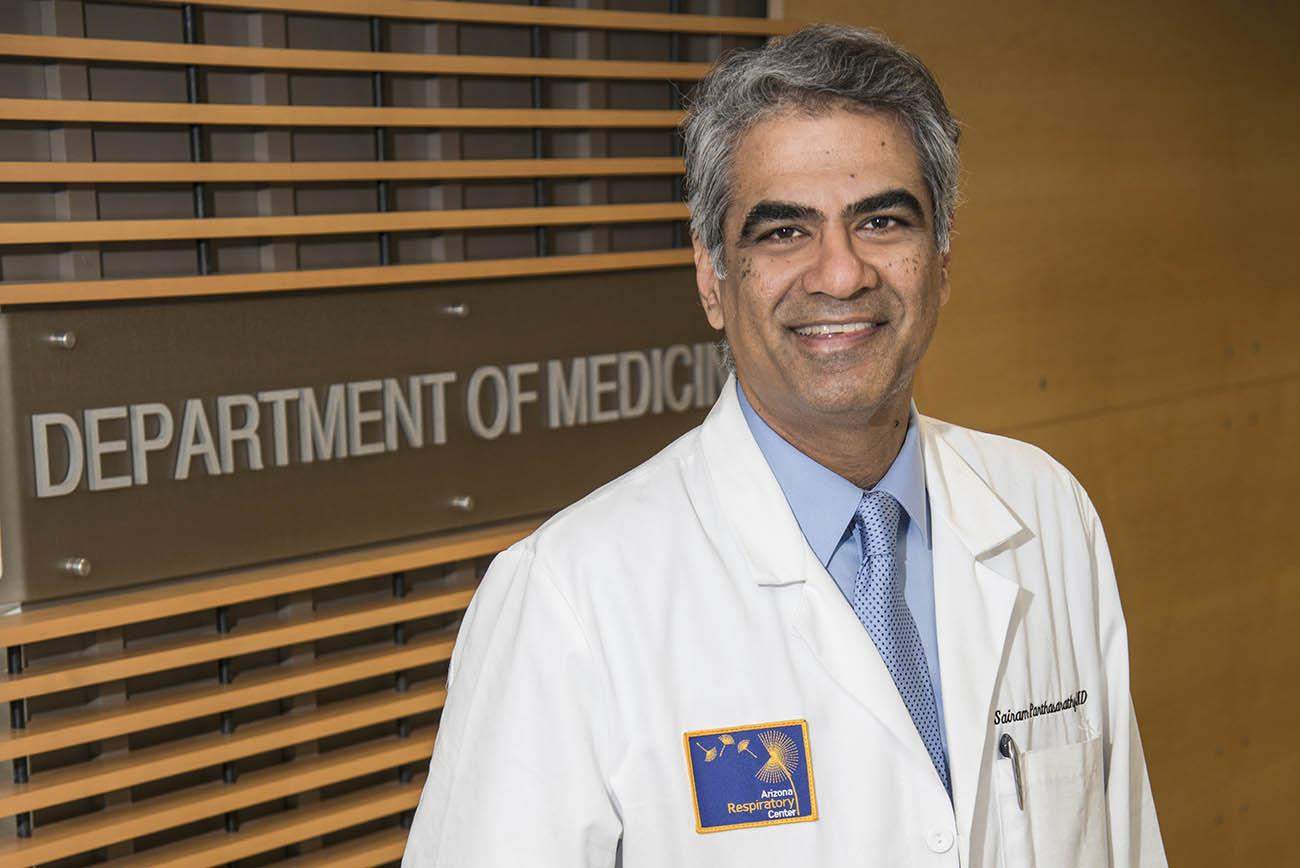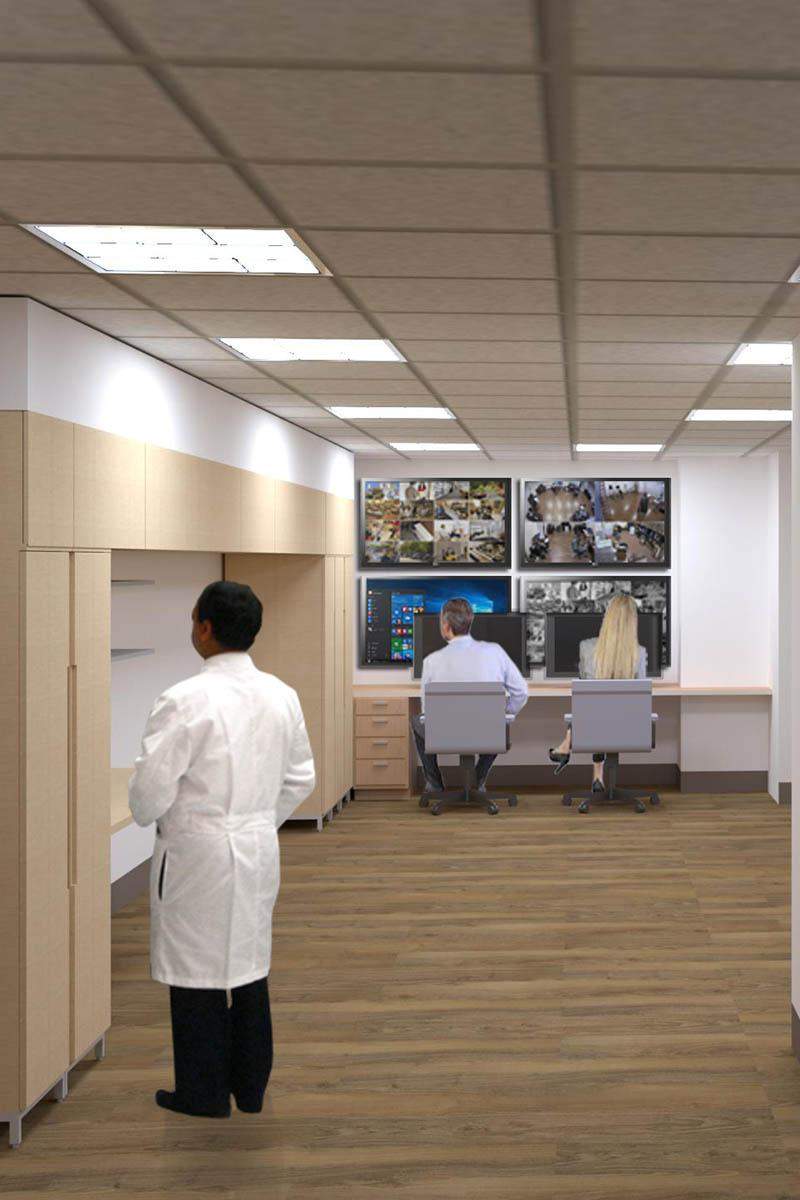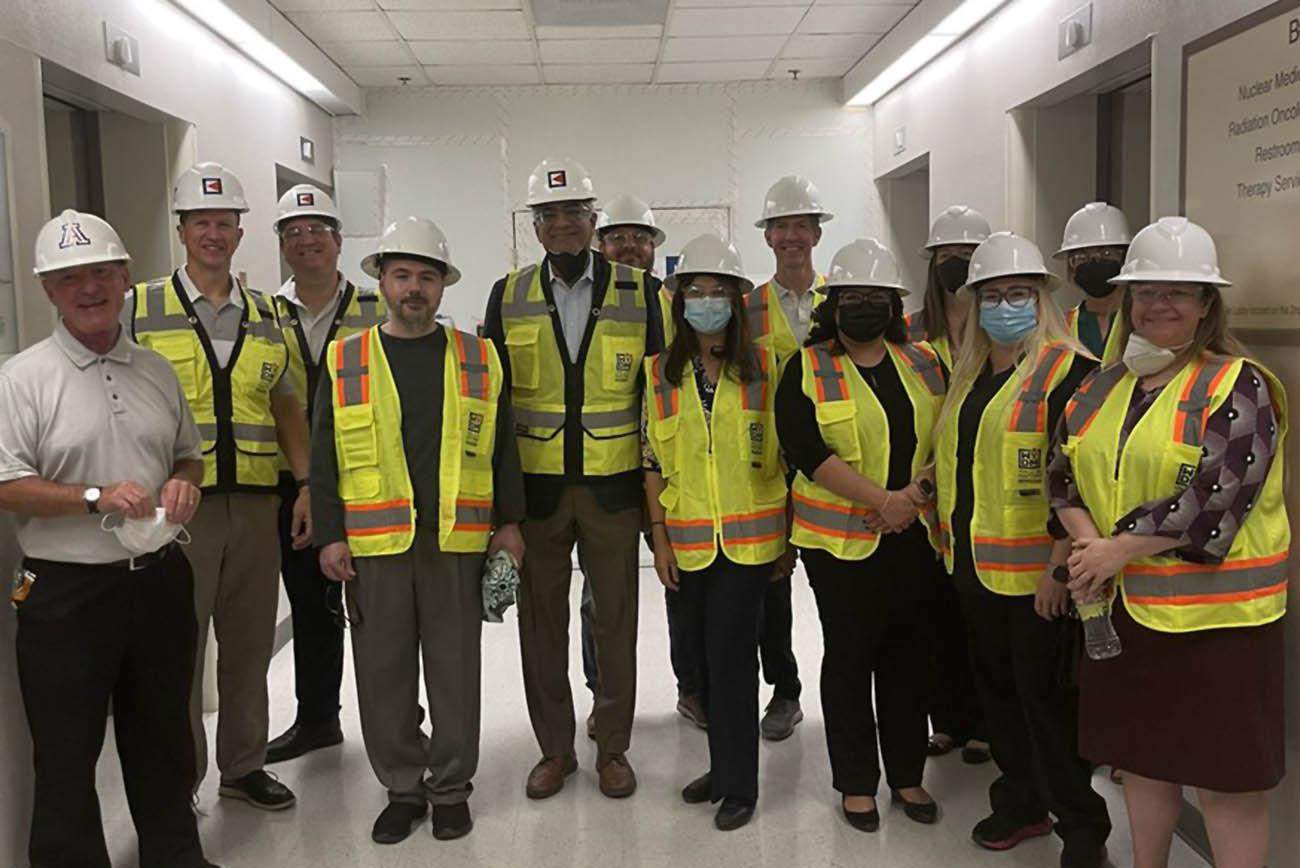An architectural rendering shows the lobby of the new Center for Sleep and Circadian Sciences, where researchers will study sleep and circadian rhythms while controlling a multitude of factors including temperature, noise levels, and the intensity, duration and color of light.
For years, University of Arizona researchers have conducted sleep studies in a leased facility located above a Tucson bar and grill. Now, thanks to a $5 million construction grant from the National Institutes of Health Office of the Director, the Center for Sleep and Circadian Sciences at the University of Arizona Health Sciences is getting a new home.
 Construction is underway at the 9,755-square-foot facility’s new location in the basement of a former Banner – University Medical Center Tucson building at 1501 N. Campbell Ave. It is expected to be completed in January 2023.
Construction is underway at the 9,755-square-foot facility’s new location in the basement of a former Banner – University Medical Center Tucson building at 1501 N. Campbell Ave. It is expected to be completed in January 2023.
“The University of Arizona Health Sciences has studied sleep for more than four decades, during which time our researchers have made pioneering advances in understanding the connections between sleep and cardiovascular disease, neurocognition and behavioral interventions,” said Michael D. Dake, MD, senior vice president for UArizona Health Sciences and principal investigator on the grant. “The Center for Sleep and Circadian Sciences’ new location and facilities will allow us to find new solutions to critical sleep issues, improving health and human potential for all.”
 A circadian rhythm is a natural, internal process that regulates the sleep-wake cycle and repeats roughly every 24 hours. Sleep and circadian rhythms can influence a gamut of health issues from cognition, heart disease and stroke to behavioral health, mental illness, and public health and safety.
A circadian rhythm is a natural, internal process that regulates the sleep-wake cycle and repeats roughly every 24 hours. Sleep and circadian rhythms can influence a gamut of health issues from cognition, heart disease and stroke to behavioral health, mental illness, and public health and safety.
“We spend a third of our lifetimes sleeping,” said Sairam Parthasarathy, MD, director of the UArizona Health Sciences Center for Sleep and Circadian Sciences and a professor and chief of the Division of Pulmonary, Allergy, Critical Care and Sleep Medicine in the UArizona College of Medicine – Tucson’s Department of Medicine. “Sleep is important not only for the brain and mental health, but also for the body and every organ system.”
Researchers will be able to study sleep and circadian rhythms while meticulously controlling a multitude of factors including temperature, noise levels, and the intensity, duration and color of light. The new facility will be in close proximity to imaging facilities, clinical research areas and other research laboratories.
 “This new lab is going to allow us to control the circadian rhythms by controlling light and noise exposure,” said Dr. Parthasarathy, who is a member of the BIO5 Institute. “We will be able to control the inhalation of gasses and remotely administer intravenous medications and do blood sampling from an adjacent room without waking patients.”
“This new lab is going to allow us to control the circadian rhythms by controlling light and noise exposure,” said Dr. Parthasarathy, who is a member of the BIO5 Institute. “We will be able to control the inhalation of gasses and remotely administer intravenous medications and do blood sampling from an adjacent room without waking patients.”
AT LEFT: Researchers took a hard hat tour at the new location of the University of Arizona Health Sciences Center for Sleep and Circadian Sciences. (From left) Daniel Taylor, PhD, Michael Grandner, PhD, Fabian Fernandez, PhD, Sairam Parthasarathy, MD, Christopher Morton, Salma Patel, MD, Scott Killgore, PhD, Natalie Provencio, MS, Patricia Haynes, PhD, Sicily LaRue, RPSGT, Fiona Bailey, PhD, and Michelle Perfect, PhD.
Research at the new facility could include identifying genetic biomarkers associated with sleep behavior and disorders, examining school and community factors affecting sleep health, studying the impact of global warming and increases in carbon dioxide on sleep, and the effects of breathing stale, recirculated air.
Sleep investigations are vital to sleep-related conditions such as sleep apnea, heart disease and stroke, as well as long-term air flying and future space exploration.
Dr. Parthasarathy is director and member of the center’s executive committee, which also includes sleep experts Michael Grandner, PhD, associate professor of psychiatry in the College of Medicine – Tucson, Patricia Haynes, PhD, associate professor of Health Promotion Sciences in the Mel and Enid Zuckerman College of Public Health, William D. “Scott” Killgore, PhD, professor of psychiatry in the College of Medicine – Tucson, and Daniel Taylor, PhD, professor of psychology in the College of Science.
Construction was supported by the Office of the Director of the National Institutes of Health under the award number C06OD028307. This content is solely the responsibility of the author and does not necessarily represent the official views of the NIH.


